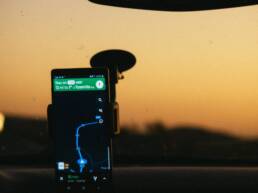Listening to your leadership GPS: managing stress, sleep, recovery and exercise
In the whirlwind of leadership responsibilities, it's easy to lose track of one essential aspect of our lives: our health. As thought leaders and professionals, we often focus on steering our organisations to success but forget to pay attention to the internal GPS guiding us through life. It's time to ask, "What is your GPS telling you as a leader, and are you listening to it?" In this article, we'll explore the vital importance of managing stress, sleep, recovery, and exercise to become better leaders by connecting the dots between our body's reactions and our daily activities.

The Leadership GPS: Just like a GPS guides us to our destination, our body provides cues about our well-being. Stress, sleep, recovery, and exercise are the critical markers on this internal GPS. When we listen to these signals, we can make informed decisions to navigate both our personal and professional lives effectively.
Managing Stress: Stress is a constant companion for leaders, but it’s essential to recognise the difference between healthy stress that drives productivity and the kind that hinders our well-being. Listening to our body’s stress signals, such as increased heart rate or muscle tension, can help us identify when it’s time to take a step back, breathe, and reassess our priorities.
Quality Sleep: Sleep is the unsung hero of leadership. Poor sleep affects our cognitive abilities, decision-making, and emotional stability. Our GPS often reveals sleep troubles through fatigue, mood swings, and reduced focus. By recognising these signs and making a commitment to better sleep, we can recharge and perform at our best.
Prioritising Recovery: Effective leadership requires more than just constant work; it demands moments of recovery and reflection. Listen to your GPS when it suggests it’s time for a break. Whether it’s a short walk, a meditation session, or even a brief power nap, these recovery periods can reinvigorate your mind and spirit.
The Power of Exercise: Physical activity is a key to maintaining a healthy leadership GPS. Regular exercise not only keeps your body in shape but also sharpens your cognitive abilities and helps manage stress. Connecting the dots between exercise and your daily activities can lead to a more balanced and productive life.
Connecting the Dots: To manage stress, sleep, recovery, and exercise effectively, you must connect the dots between your body’s reactions and daily activities. Are you making time for self-care? Are you incorporating exercise into your routine? Are you taking time to recharge and reflect? By answering these questions and making adjustments, you can optimise your leadership journey.
Conclusion: Your leadership GPS is a vital guide on your professional and personal journey. To be an effective leader, you must listen to your body and respond to the signals it sends. By managing stress, prioritising sleep, embracing recovery, and incorporating exercise into your daily life, you not only boost your leadership capabilities but also achieve a better work-life balance. As thought leaders, let us set the example for a healthier, more successful, and fulfilling leadership journey.
